Low wages and the relentless cycle of poverty force many farmers in Rajasthan to leave their families and seek better opportunities elsewhere. Their children, innocent victims of circumstance, are often forced to discontinue their education. Three young entrepreneurs, Satyam Bhandari, Rohit Negi, and Mohit Rana, were determined to change this, and through grit and hard work, they founded Foreka, a company that aimed to empower these farmers and uplift their communities.
“I watched my mother struggle to become financially empowered so she could give me a better life, and that inspired me deeply. As I connected with farmers and tribals, I was reminded of her struggles. I knew I had to do something for them, to ensure they too could have equal opportunities,” Satyam says.
Born and raised in Agastyamuni, a peaceful town cradled in the foothills of the Himalayas, Satyam, who lost his father at the age of four, had seen his mother work tirelessly to manage the household and raise him on her own. “I am thankful to her for ensuring I attended a good school and for giving me everything I needed to thrive,” he says. But many aren’t so lucky.
A passion to positively impact the lives of farmers
After completing his schooling, he pursued a bachelor of science (BSc) degree at a Dehradun college. Yearning to pursue some impactful work, he joined the Gandhi Fellowship in 2018-19 — a life-changing decision that profoundly shaped his future.
“It was here that I truly understood the struggles of marginalised communities. I worked with the Piramal Foundation in Vidisha, Madhya Pradesh, and witnessed the lives of farmers and tribal communities,” the 27-year-old says.
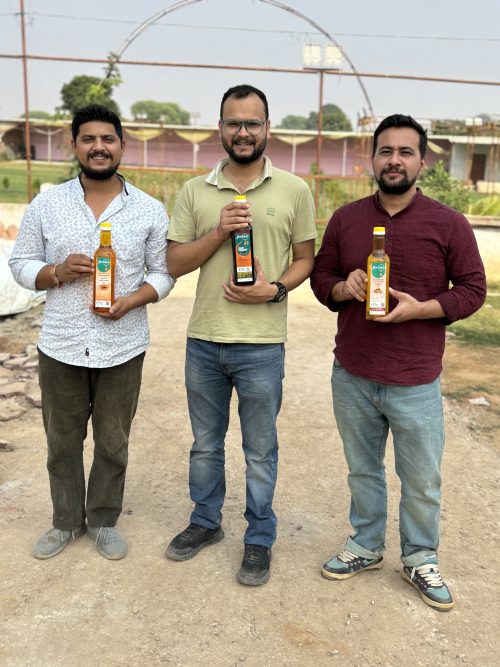
“I remember teaching at a school where the attendance was consistently low. I later realised that the children were working in the fields or doing household chores because earning Rs 100 per day was far more important to their families than sending the children to school,” he explains.
Under the Fellowship, Satyam stayed with a tribal family in Vidisha district for a month. The head of the family was a painter who earned a modest income, and their livelihood largely depended on fieldwork. The elder son, just nine years old, was kept out of school to help in the fields and earn some money for a meal. Meanwhile, the six-year-old son cared for his younger sister and took on household chores.
“I remember having a conversation with the family while an airplane flew overhead. I asked if they had ever travelled by flight or whether they planned to, and the head of the family responded that it wouldn’t happen in this generation,” he recalls. “That moment stayed with me and opened my eyes to the harsh truth that survival often took precedence over education for many families in these communities.”
His stay with the tribal family during his fellowship took him back to his childhood. “I remembered how difficult it was for my mother to raise me without a father,” he says. “Although life became easier after she secured a government job, I always knew how hard she worked to get us there.”
Realising that the root cause of children skipping school in these areas wasn’t the absence of will, but the absence of resources. “Basic needs like food and shelter were prioritised over education. I understood that creating livelihoods for these communities was the key to unlocking their potential,” he says. This understanding became the foundation for his future work.
“I started talking to local farmers, listening to their problems, and figuring out what could be done to help them,” he says.
Teaming up with friends
During his fellowship, he continued probing the causes that led to farmers facing financial struggles. Satyam’s inspiring moment came after he met Geeta Devi, a tribal woman who had risen from poverty to become the director of a Farmer Producer Organisation (FPO).
“Her journey was incredibly inspiring. She had once struggled just to buy tea leaves, but now she was managing an FPO that empowered farmers. Her story gave me hope that with the right resources, anybody can rise in life,” he explains.
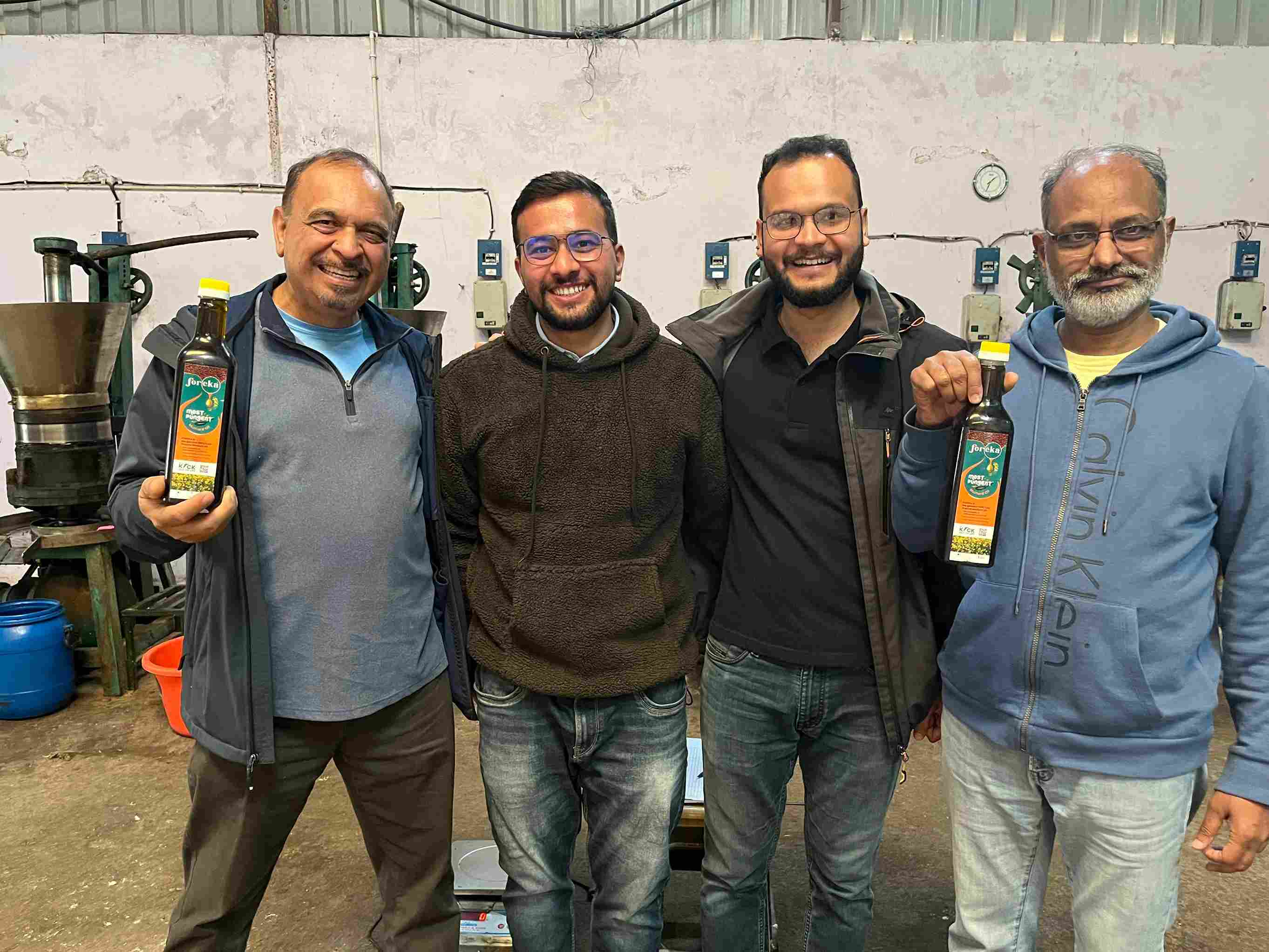
“I wanted to create something that went beyond just supporting farmers. I wanted them to have a stake in the entire process, from cultivation to sales,” says the young entrepreneur.
After completing his fellowship, he returned to his hometown where he discussed his desire to make a difference with his schoolmates, Rohit Negi and Mohit Rana.
“Since college, we used to talk about doing business together. Whenever we saw farmers working so hard, we thought about how they struggle to provide for their families,” says Mohit, who has an engineering background and was, at that time, working as a civil engineer.
The three friends got together to take the entrepreneurial plunge and founded Heart in Hills in 2021. “My inspiration to join this venture stemmed from a deep desire to help people in rural areas who want to stay with their families while earning a livelihood. I wanted to empower them,” says Rohit.
While Rohit decided to take up sales and operations, Mohit, who quit his job to co-found the venture, focused on sourcing raw materials and quality control. Together, they created a model they believed could transform rural livelihoods.
On the path towards empowering farmers
“We started in Uttarakhand, where we received an initial grant of Rs 3 lakh,” Satyam says. Their goal was to buy produce directly from farmers and offer them better prices. “We procured millets from farmers in Uttarakhand and sold them to buyers in southern India,” he explains.
Heart in Hills operated in Uttarakhand by procuring millets directly from local farmers, offering them 10-15% higher prices than the market rate as an incentive for their quality produce. The company provided primary processing services, including grading, sorting, and cleaning of the millets, before selling them to bulk clients down south.
“In 2020 and 2021, Heart in Hills helped me earn approximately Rs 4 lakh. I could repay my loans and purchase essentials,” says Subdei (78), from Luthiyag village, Rudraprayag district. “Before, traders would buy from me but didn’t pay me fairly. Now, I am capable enough to run my business, trading pulses and millets.”
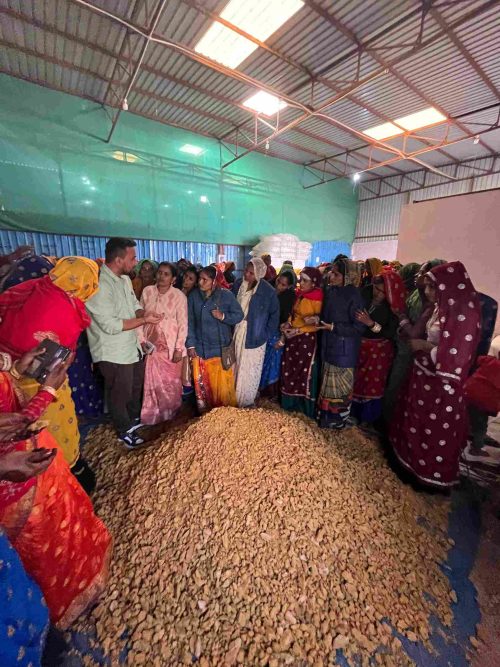
But, running a large-scale venture was not easy. “The traders felt threatened by our model. They were used to controlling the market, but we believed in the power of direct trade,” Satyam says. Despite their venture causing some tension in the local markets, he and his team pressed on.
However, soon the young entrepreneur realised that offering higher incentives to farmers wasn’t enough to sustain long-term growth. “The business became increasingly seasonal, with supply chain challenges making it difficult to maintain consistent operations. So, we had to stop our operations in Uttarakhand and come up with a better approach to expand our business,” he explains.
Building cold-pressed oil brand
During the second COVID-19 wave, he and his team noticed an increasing demand for cold-pressed oils. This insight led them to pivot their business model.
In February 2022, the Heart in Hills team ventured into the cold-pressed oil market with the launch of Foreka in Rajasthan. This expansion was made possible by the support Satyam received in November 2020, when he was awarded a prestigious fellowship from The Buddha Institute, founded by Ved Arya, an alumnus of IIM Ahmedabad.
“The Buddha Institute provided us with a generous grant of Rs 22 lakh,” he shares, which played a crucial role in enabling the team to scale their operations. Their research into the region highlighted a high rate of outmigration, presenting an opportunity to create local employment. Furthermore, the exceptional quality of mustard seeds in the area made it an ideal location for their venture.
They partnered with NGOs like SRIJAN to establish a value chain for farming, offering farmers better prices and resources to test seed quality. “By supporting farmers directly, we ensured fair prices and sustainable practices,” says Satyam.
Their breakthrough came with the establishment of a processing unit in Hindaun, Karauli district, Rajasthan. The setup includes cold-pressed machines owned by the farmers, while Foreka works on a co-profit model, sharing 50% of the profits after covering costs. Partnering with two Farmer Producer Organisations (FPOs), one near Jhansi and the other in the Chambal Valley, Foreka sources groundnuts, processes them, and sells groundnut oil. The model helps reduce outmigration and create local employment.
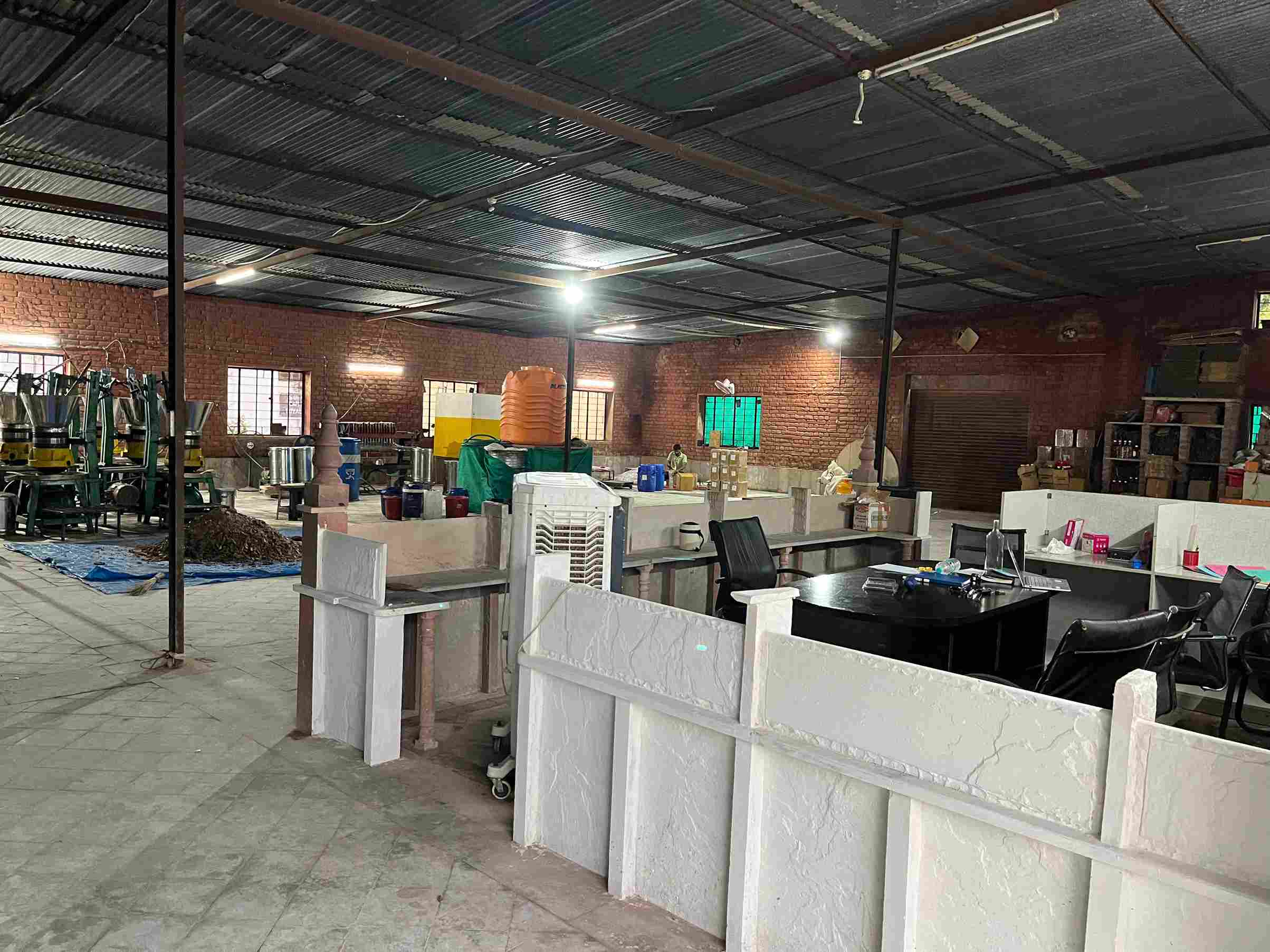
“They have given me financial stability, pride in my work, and a brighter future for my family,” says Ramavtar, a 42-year-old farmer. “As a farmer with divided land and unpredictable income, life was tough. I struggled to provide for my family and lacked opportunities for my children. But joining Foreka changed everything. They offered fair prices for my mustard seeds, which boosted my income, and trained me to operate machines, giving me a steady job. Now, my children are receiving an education, and one is pursuing a degree in Veterinary Sciences,” he adds.
“Farmers are treated as partners, not just suppliers. They have a direct stake in the success of the business,” says Satyam. “This model ensures that they are as invested in the growth of the business as we are.”
Overcoming challenges, building a brand
The trio faced a series of significant challenges as they expanded their business. “It was difficult to raise funds after becoming a private limited company. There are very few impact investors, especially in rural entrepreneurship,” Satyam recalls.
Another major challenge was their inexperience. “We were driven by willpower, but we had little experience and lacked the necessary skills. We realised that skills are developed through experience. So, we took the time to seek mentoring in areas like marketing and sales,” he adds.
But a major challenge came when the trio encountered their “first fraud”. “We had taken a Rs 25 lakh loan to procure oil from farmers, and we received our first order in July 2022, a 300-litre batch of cold-pressed oil. The order was valued around Rs 6-7 lakh, and we had to send it to Noida in the NCR,” Satyam recalls. “We worked all night packing and preparing the shipment, and I went to collect the payment. The vendor told me that his bank account wasn’t working and that he could only transfer Rs 1.5 lakh initially,” he says. Unfortunately, this was just the beginning of their troubles. The vendor ended up not paying the remaining Rs 4 lakh.
“This was a huge challenge. To repay the loan, we had to raise Rs 15 lakh from friends and family,” he explains, reflecting on the difficulties but also being grateful for the support he received.
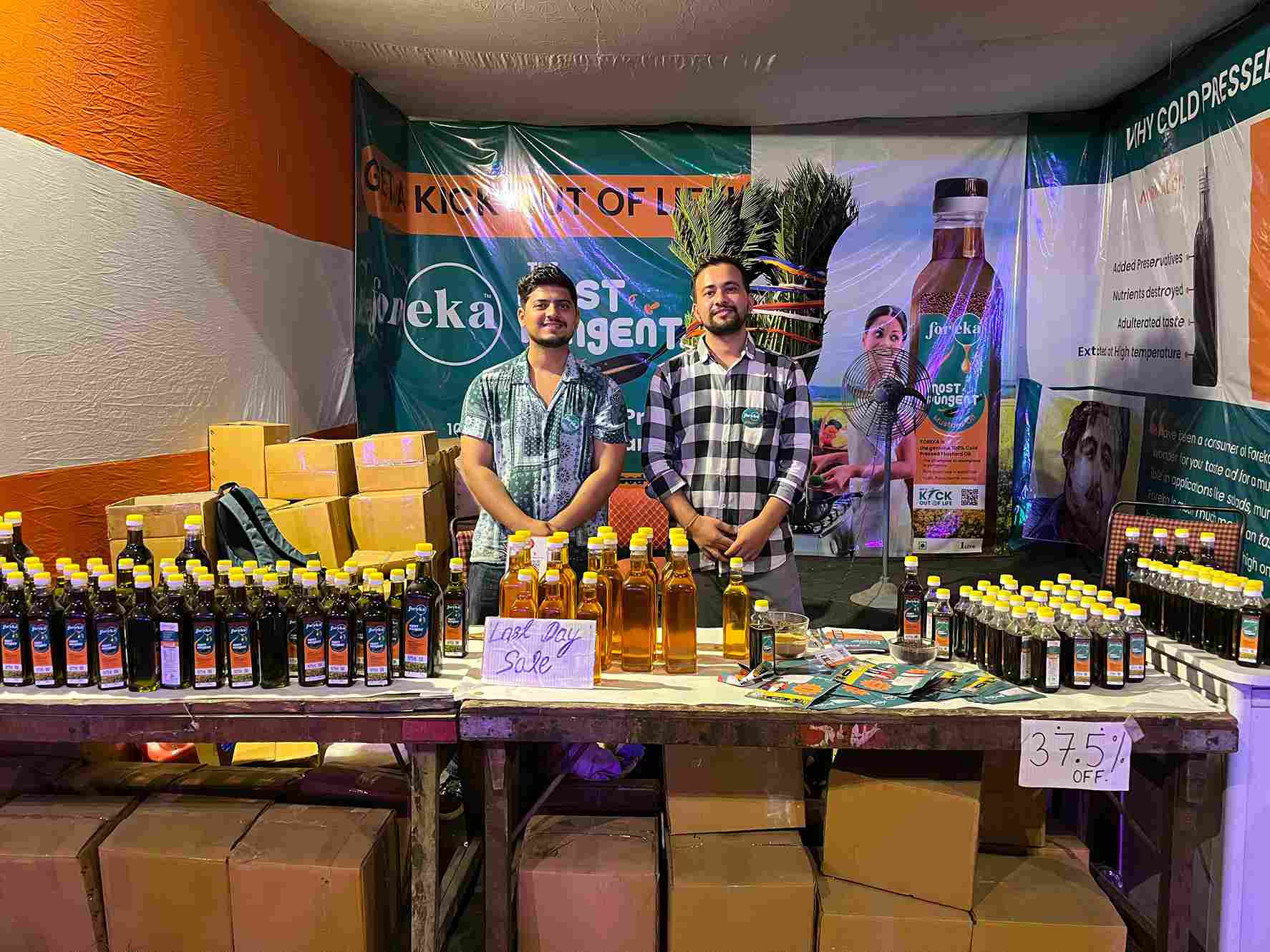
Despite these setbacks, the trio’s resolve never wavered. They knew that these challenges were part of the journey and continued to move forward with the support of their team, mentors, and the community they were building.
Foreka’s revenue surged from Rs 60 lakh in 2023-24 to Rs 1.3 crore in the first two quarters of 2024-25. It is expected to reach Rs 2.5 crore by the end of 2024-25, marking a more than fourfold increase compared to the previous year.
Their cold-pressed oils, priced at Rs 320 per litre for black mustard, Rs 450 for yellow mustard, and Rs 500 for groundnut, are gently extracted using the cold-press method, preserving their full nutritional value.
Looking ahead, Foreka plans to expand further by establishing processing units for five oilseeds over the next three years, involving 10,000 farmers, and creating 250 jobs.
The company is also developing a ‘House of Mustard,’ a project focused on value-added mustard products such as mustard sauce and chutney. Currently in the R&D stage, the initiative has already produced samples, and the team is working to raise funds and develop a B2C branding strategy.
“We’re building livelihoods, not just a business,” says Satyam.
Edited by Arunava Banerjee; All images courtesy Satyam Bhandari
No comments:
Post a Comment